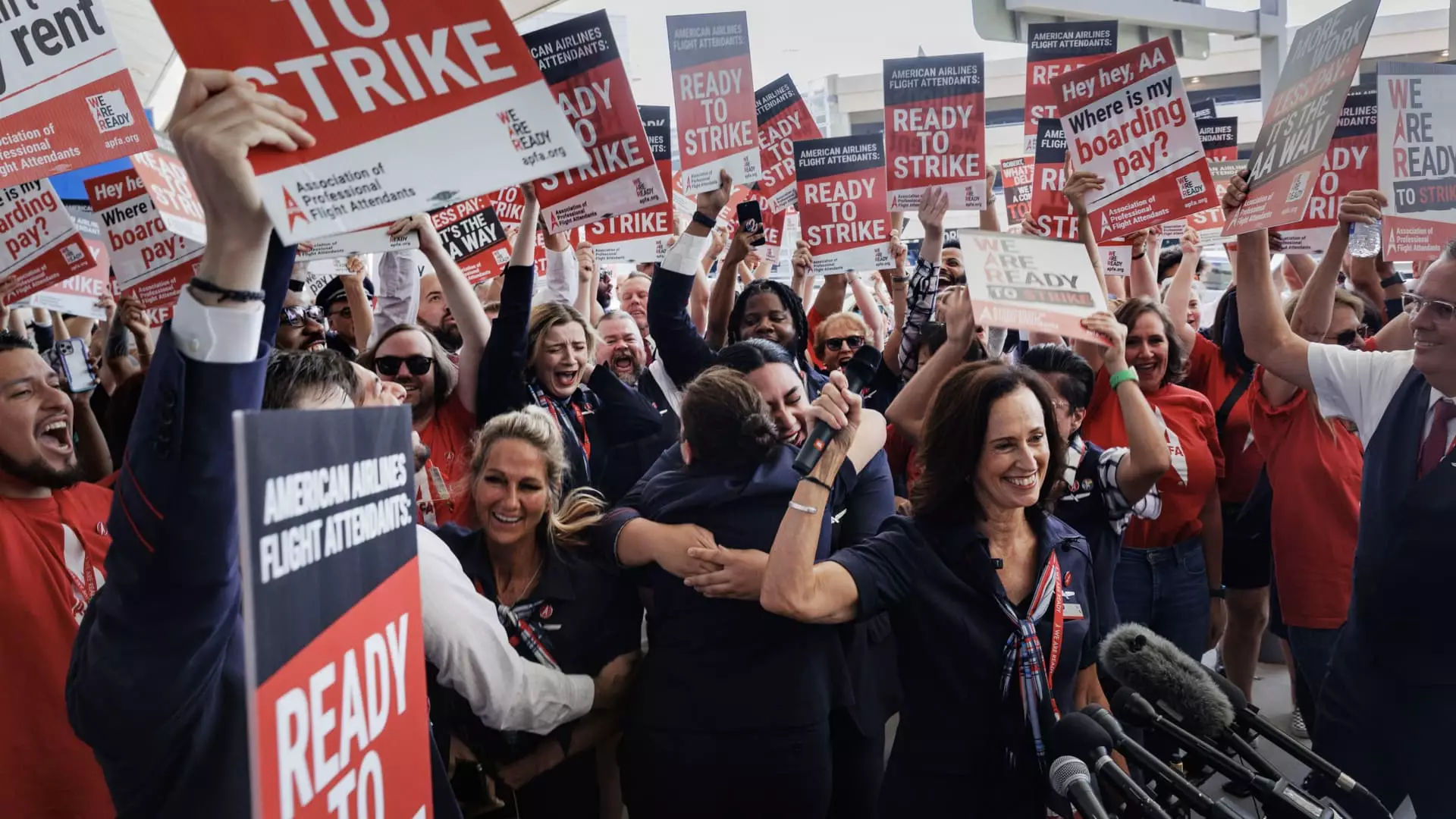In a significant development for the airline industry, flight attendants at American Airlines have ratified a labor contract that promises substantial wage increases and retroactive pay. With 87% of voting flight attendants approving the five-year deal, this resolution marks the end of a prolonged negotiation process that had already raised concerns of potential strike action. As the nation grapples with rising costs and inflation, the $1.1 billion agreement symbolizes not just a financial advancement for cabin crews but also addresses larger issues concerning fair compensation and work conditions.
Set to take effect at the beginning of October, the contract ensures hefty wage raises of up to 20.5% for American Airlines’ flight attendants. Julie Hedrick, the president of the Association of Professional Flight Attendants, heralded this contract as a major victory for approximately 28,000 cabin crew members. Notably, the agreement also includes significant retroactive pay, acknowledging the lengthy negotiation process that has consumed time and energy for many involved. The relief felt by both the airline’s leadership and flight crews will undoubtedly enhance morale and productivity within the workforce.
The push for a resolution wasn’t solely driven by internal dynamics. Influences from government officials, including Transportation Secretary Pete Buttigieg and Labor Secretary Julie Su, played crucial roles as mediators during the negotiations overseen by the National Mediation Board. Their involvement highlights the importance of government oversight in labor disputes, particularly in sectors that significantly impact the economy and workers’ livelihoods. Furthermore, coordinated pressure from over 160 lawmakers adds another layer of complexity to the narrative, demonstrating the broader implications of labor negotiations in essential industries.
The approval of this contract reflects a broader shift in labor relations across multiple industries. Following the disruptions caused by the COVID-19 pandemic, employees from diverse sectors are demanding better wages and improved working conditions. Similar labor movements have gained momentum within the auto industry and Hollywood, emphasizing a growing consciousness among workers regarding their rights and financial well-being. While American Airlines has reached an agreement, other airlines, such as United and Alaska Airlines, are still in negotiations, highlighting ongoing uncertainty in the sector.
As American Airlines celebrates this pivotal moment, the focus will turn to the future of labor relations within the company and the broader aviation sector. With successful negotiations setting a standard for pay and workplace rights, other airlines may be compelled to follow suit or risk heightened discontent among their employees. The case of Boeing is particularly telling; with 33,000 workers voting on a new contract that includes significant pay raises, the potential for a strike underscores the fraught nature of labor relations today.
The recent contract ratification by American Airlines flight attendants signals a momentous achievement not only for those involved but also for the labor movement in general. It serves as a blueprint for how workers can advocate for equitable pay in challenging economic times, and sets the stage for future negotiations across various sectors.

